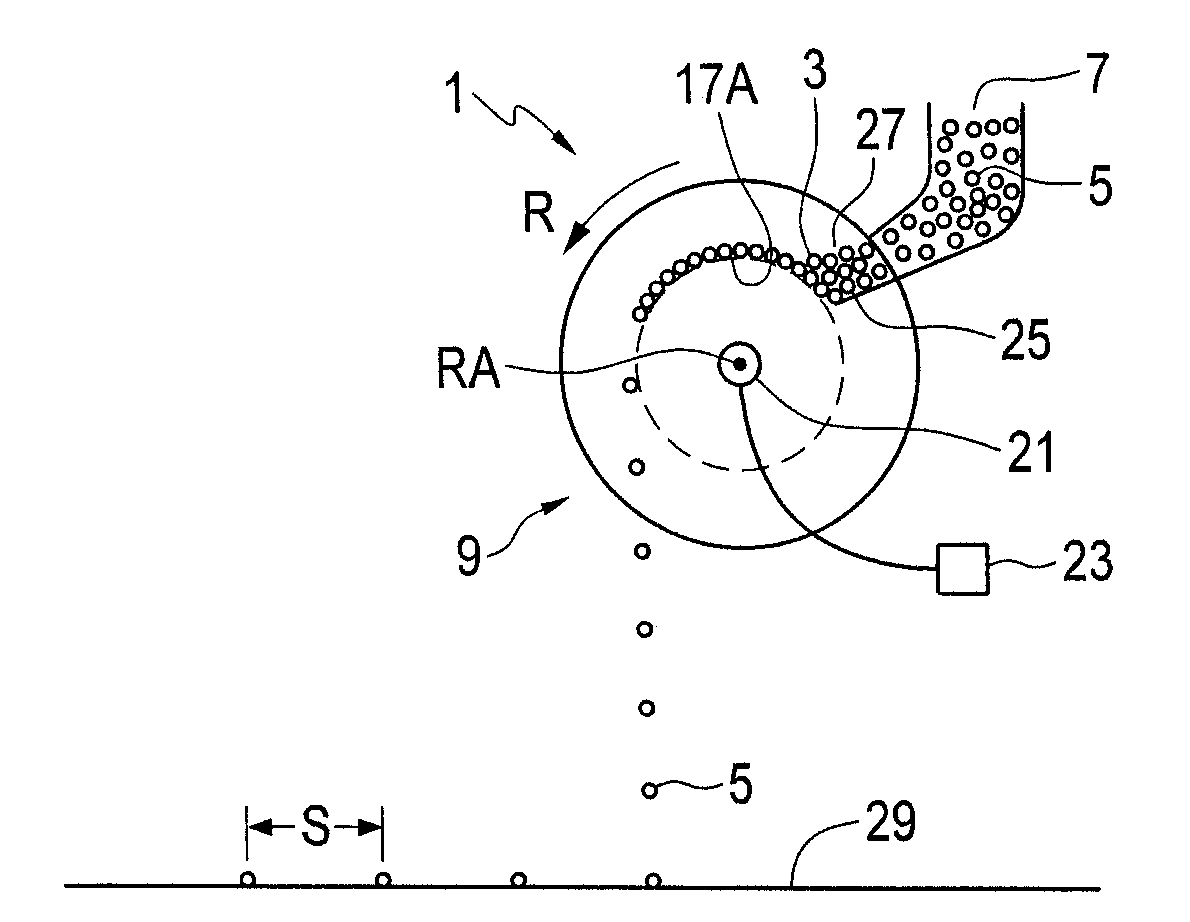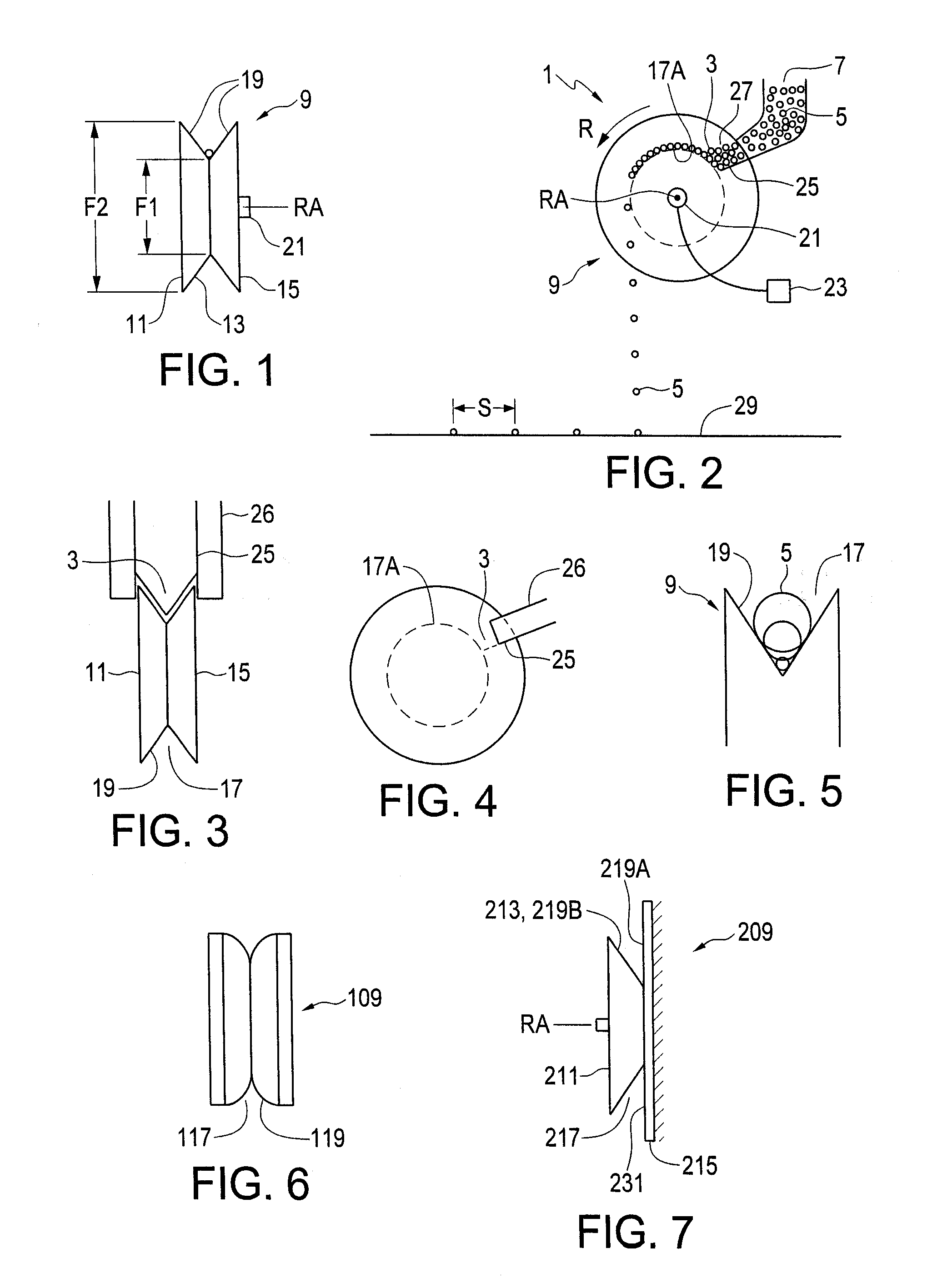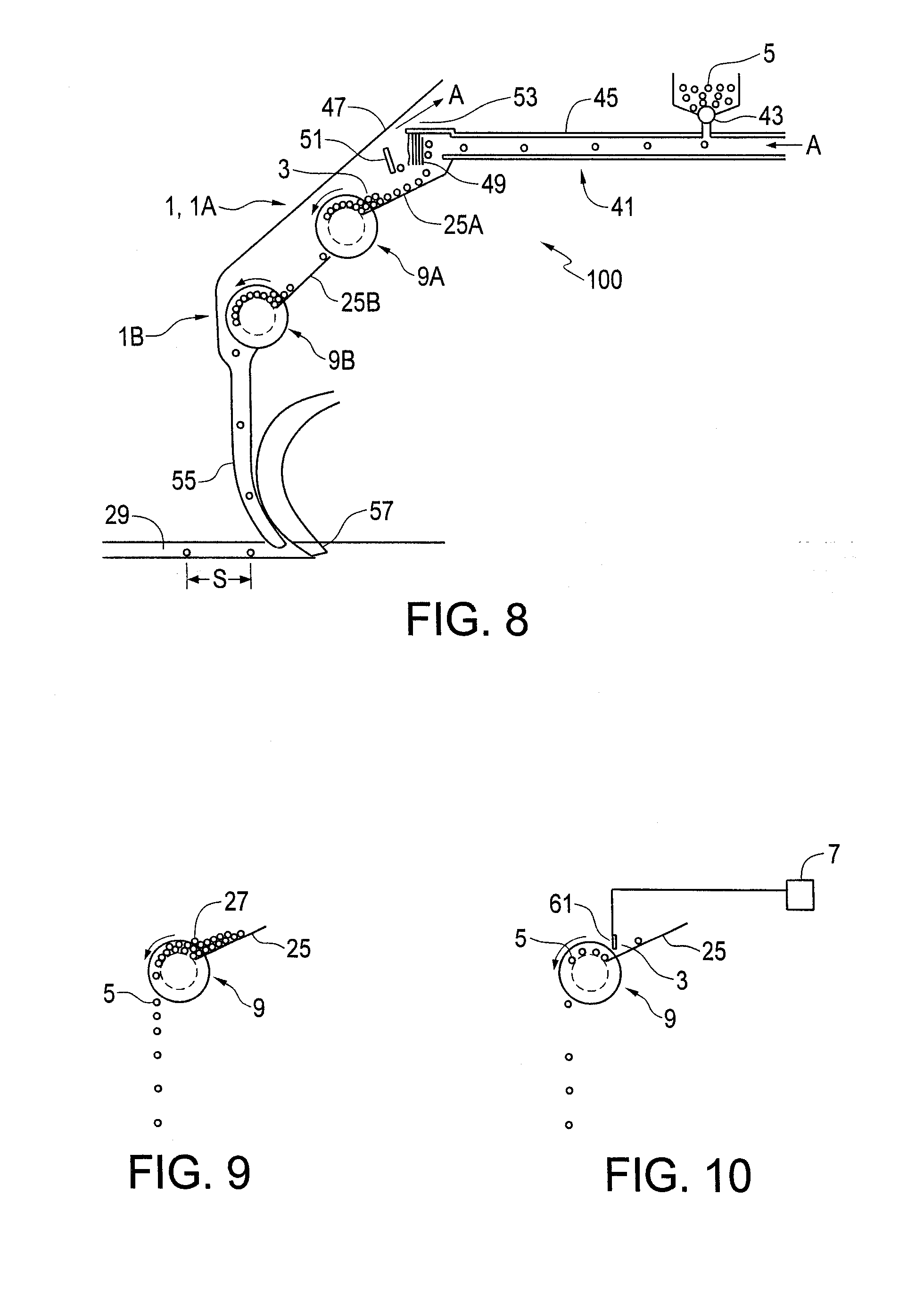Singulating seed
a seed and seed technology, applied in the field of single grain seed, can solve the problems of waste of seed, increasing cost, and time-consuming systems, and achieve the effects of uniform seed spacing, low cost, and simple and economical
- Summary
- Abstract
- Description
- Claims
- Application Information
AI Technical Summary
Benefits of technology
Problems solved by technology
Method used
Image
Examples
Embodiment Construction
[0039]FIG. 2 schematically illustrates an embodiment of a seed feeding apparatus 1 of the present invention. The apparatus 1 comprises a pocket 3 configured to receive seeds 5 from a seed supply system 7. The seed supply system 7 could be a conventional system where seeds are received from a container above the furrow opener or an air distribution system.
[0040]A feed assembly 9 comprises a circular first member 11 having a diameter F1 at an inner face thereof that is smaller than the diameter F2 at the outer face thereof such that the outer rim 13 of the first member 11 slopes from the inner edge of the first member 11 toward the outer edge thereof. A second member 15 has an inner face located adjacent to the inner face of the first member 11 such that a substantially circular V-shaped groove 17 is formed with walls 19 provided by the outer rim 13 of the first member 11 and the second member 15.
[0041]A drive, such as a motor 21 powered by electricity, hydraulics, or the like, or a g...
PUM
 Login to View More
Login to View More Abstract
Description
Claims
Application Information
 Login to View More
Login to View More - R&D
- Intellectual Property
- Life Sciences
- Materials
- Tech Scout
- Unparalleled Data Quality
- Higher Quality Content
- 60% Fewer Hallucinations
Browse by: Latest US Patents, China's latest patents, Technical Efficacy Thesaurus, Application Domain, Technology Topic, Popular Technical Reports.
© 2025 PatSnap. All rights reserved.Legal|Privacy policy|Modern Slavery Act Transparency Statement|Sitemap|About US| Contact US: help@patsnap.com



